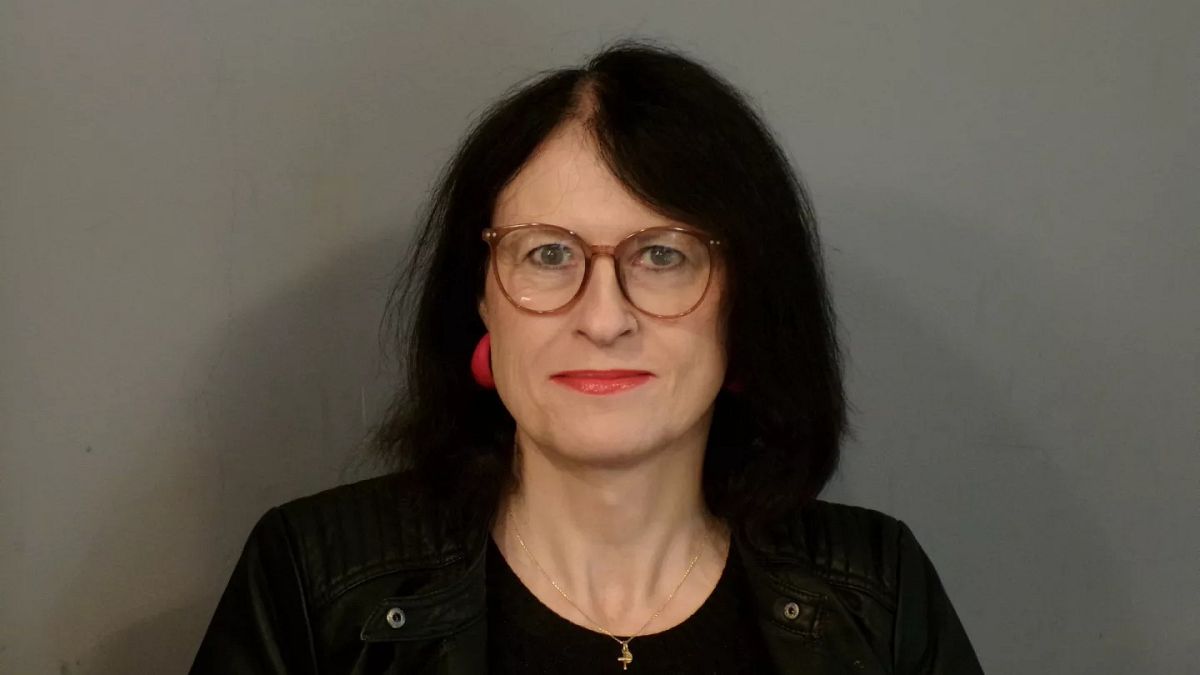The UK’s only openly transgender judge is planning to taking the government to the European Court of Human Rights (ECHR) after the British Supreme Court ruled that existing equalities legislation refers to “sex” exclusively in biological terms.
Dr Victoria McCloud came out as transgender in the 1990s and became a judge in 2006.
She told Euronews that “as a trans woman with female genitalia who came out decades ago, I must now use mens’ toilets, men’s changing rooms, and be treated as a male. Life is now impossible for people like me”.
Dr McCloud now works as a litigation strategist, and believes the Supreme Court’s decision could be in breach of human rights law. The UK is bound by ECHR decisions under the 1998 Human Rights Act.
In order for a case to be brought before the ECHR, it must have already been taken to the highest court in a country’s jurisdiction, after which an application can be filed within four months of the final domestic decision.
Background on the case
The UK Supreme Court’s ruling is the result of a long-running dispute between the feminist group For Women Scotland and the Scottish government.
The Supreme Court’s mission was to determine how the terms “woman” and “sex”, which feature in the UK’s Equality Act 2010, should be defined.
This meant that judges had to decide whether a trans person who holds a full gender recognition certificate (GRC), which recognises their gender as female, is a “woman” for the purposes of the act.
“The unanimous decision of this court is that the terms “woman“ and “sex“ in the Equality Act 2010 refer to a biological woman and biological sex,” said Lord Hodge, the Deputy President of the Supreme Court who delivered the ruling.
Lord Hodge went on to warn against “reading the judgement as a triumph of one or more groups in our society at the expense of another”.
Speaking to Euronews, Dr McCloud pointed out that “in the UK, the only record of ‘sex’ is a birth registration”.
“Under the UK law mine was changed decades ago to female by a court process,” she said. “Now that birth registration no longer counts, there is no way for anyone to ‘prove’ sex in the UK legally whether they are trans or not.“
In practical terms, the Supreme Court’s decision means that trans women can be excluded from some groups and single-sex spaces such as changing rooms, homeless shelters, swimming areas and medical or counselling services provided only to women.
Despite this, the court asserted that the ruling does not eliminate trans people’s protections from discrimination under UK law.
Interim update on the ruling
McCloud argues that the ruling has thrown the situation trans people into confusion, contrary to UK Prime Minister Keir Starmer’s reaction that the Supreme Court’s judgement provides “real clarity” on gender recognition.
She said the court “refused to hear any argument or evidence from any trans people affected by the case, and gave no reasons”.
The Supreme Court took arguments from the human rights campaign group Amnesty International, but not from trans activists who asked to make representations.
While UK courts can decide on whether they wish to consider arguments from outside “interveners”, judges often reject such interventions if they conclude they are going to hear all the relevant arguments from others.
In an interim update, the UK’s Equality and Human Rights Commission said that in public spaces, “trans women (biological men) should not be permitted to use the women’s facilities and trans men (biological women) should not be permitted to use the men’s facilities”.
Yet it added that despite this, trans people should not be left without the necessary facilities.
For Dr McCloud, it is worrying that “everyone, trans or not, will have to ‘prove’ their ‘biological sex’ if they are challenged by someone who thinks they look too masculine to be in women’s toilets and many other places”.
When it comes to toilets, government Cabinet Office minister Pat McFadden told the BBC “there will not be a toilet police”.
Dr McCloud told Euronews that she is currently in the process of moving from the UK to EU member state Ireland, where trans people’s preferred gender is recognised by the state under the 2015 Gender Recognition Act.
“EU citizens, workers’ unions, and student bodies should consider whether to raise concerns with their governments or other organisations given that after Brexit many EU citizens live and work in the UK or are students,” said Dr McCloud.
Meanwhile, speaking to Euronews, Marion Calder, director of For Women Scotland, said she was “bemused” when she learned that Dr McCloud was planning on appealing the case at the ECHR.
Calder warned that McCloud runs the risk of applying the UK’s judgement across Europe should her appeal be unsuccessful, adding that her organisation would welcome such an outcome “as women need to be protected everywhere, not just in the UK”.



